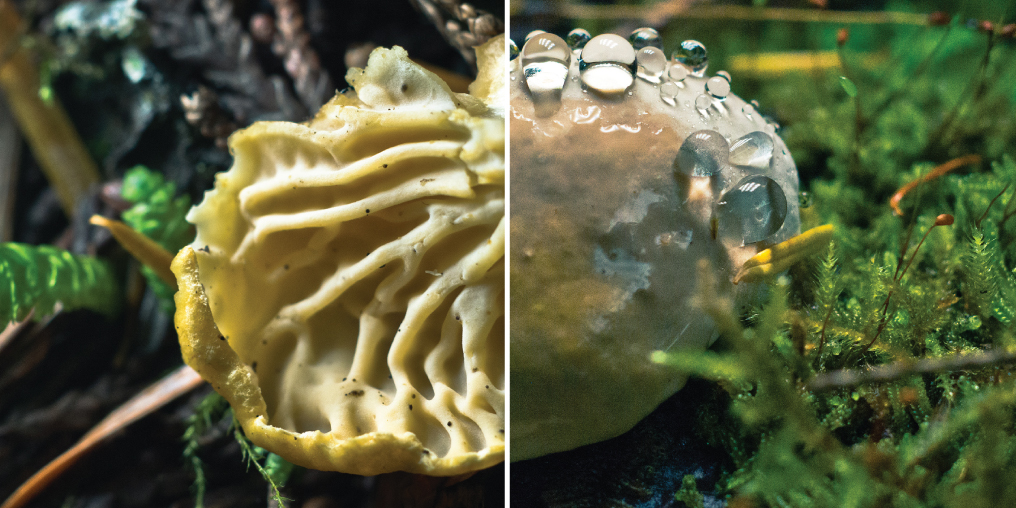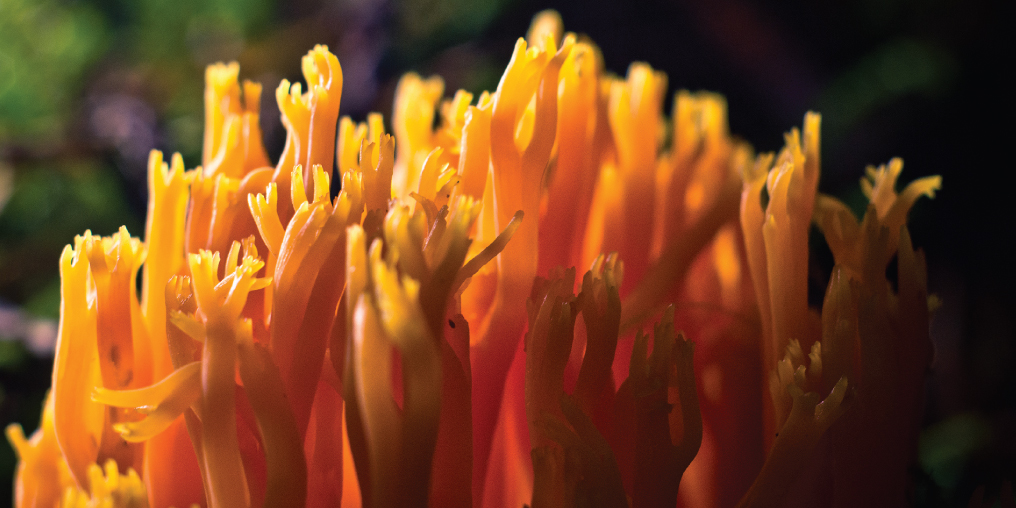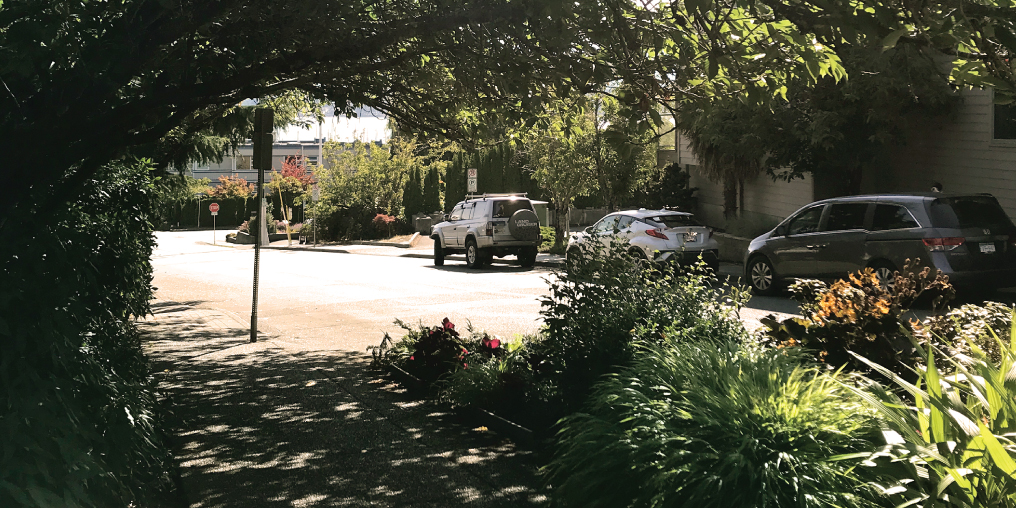“Fungi make worlds. They also unmake them. There are lots of ways to catch them in the act. When you cook mushroom soup, or just eat it. When you gather mushrooms, or buy them. When you ferment alcohol, or bury your hands in the soil; and whether you let a fungus into your mind, or marvel at the way that it might enter the mind of another. Whether you’re cured by a fungus, or watch it cure someone else; whether you build your home from fungi, or start growing mushrooms in your home, fungi will catch you in the act. If you’re alive, they already have.”
—Merlin Sheldrake, biologist
The Cumberland Fungus Fest was born during the strangest of times. In the summer of 2020, the Cumberland Community Forest Society was working toward completing the purchase of a patch of beautiful old forest along Perseverance Creek. But our work was happening in the context of a global pandemic filled with overwhelming unknowns.
Stress levels were at an all-time high, major fundraising events were cancelled, and funders were pulled in new directions to respond to unprecedented community needs. Folks were both hungry for connection, and anxious about it. We were suffering. The interconnectedness of fungi in the forest emerged as a metaphor for the importance of connection to the human community.
So we decided to start a festival. Our first year was hybrid, with live-streamed Zoom talks and a small offering of (carefully spaced) outdoor walks. Over the next three years, we’ve sharpened our skills, mastered new technology, and made new friends. We’ve been building community like mycelium—the connective tissue of fungi—and nurturing the interconnections upon which all life depends.
This year is the fourth annual Cumberland Fungus Fest, and we’ve become part of a circuit of fungi-themed fests throughout British Columbia. The event has evolved into an “interdisciplinary celebration of all things fungi,” with this year’s program including forest ecology, architecture, art, food, cultural traditions, death-positive culture, psychology and yes, psychedelics.
The connections between forest ecology and fungi are powerful. The mushrooms we know from our walks in the forest are the fruiting bodies of fungi. Mycelium is a sub-surface root-like fungal structure—branching threads that can form colonies spanning thousands of acres. Mycelium is vital to regeneration and healthy forested ecosystems. It is a critical player in the decomposition of forest materials, builds soil, and moves nutrients and water through the forest floor. It has even been posited to facilitate a type of communication between trees that’s been dubbed the “wood-wide web.”

“Fungi are the interface organisms between life and death.”
—Paul Stamets, mycologist
Fungi play a crucial role in the decomposition of the natural world, and we’re part of that world. Whether we’re contemplating the breakdown of our physical bodies, green burial, or our feelings about grief, death and dying, fungi are there to connect with us.
They may even be able to help with mental health issues. Recently the federal government announced a $3-million research investment into clinical trials on psilocybin-assisted psychotherapy for PTSD, alcohol use disorder, treatment-resistant depression, and end-of-life psychological distress. (Psilocybin is the psychedelic compound extracted from certain kinds of fungi, aka “magic mushrooms.”)
Recent research at the John Hopkins University School of Medicine showed that “a single treatment with the psychedelic psilocybin produced sustained decreases in anxiety and depression among patients with a life-threatening cancer diagnosis.” In a larger Johns Hopkins study of over 3,000 psychedelic experiences, participants “reported a lasting positive effect, providing personal meaning, spiritual significance, and psychological insight.” It is an exciting time in the world of psilocybin research and emerging therapies, and Fungus Fest is creating space for discussions about its use in support of the human condition.
“When we look within ourselves with psilocybin, we discover that we do not have to look outward toward the futile promise of life that circles distant stars in order to still our cosmic loneliness. We should look within; the paths of the heart lead to nearby universes full of life and affection for humanity.”
—Terence McKenna, ethnobotanist
Fungi are fascinating, diverse, beautiful, surprising, useful, delicious (sometimes), and restorative. Neither plants nor animals, they have evolved over the past billion years, becoming masters of survival, integral to the existence of life on Earth. They decompose and recycle, moving organic matter through the carbon cycle. They have the ability to break down complex polymers (plastics) and, goodness knows, we need some help there. Falling in love with fungi is easy.
The 4th Annual Cumberland Fungus Fest takes place September 28–30, offering three days of talks, walks, workshops, films, a BioBlitz, a Friday night Fungus Bazaar, a Saturday night Forest Feast in partnership with LUSH Valley, and more. Find out more about schedules, speakers and tickets at www.cumberlandforest.com





